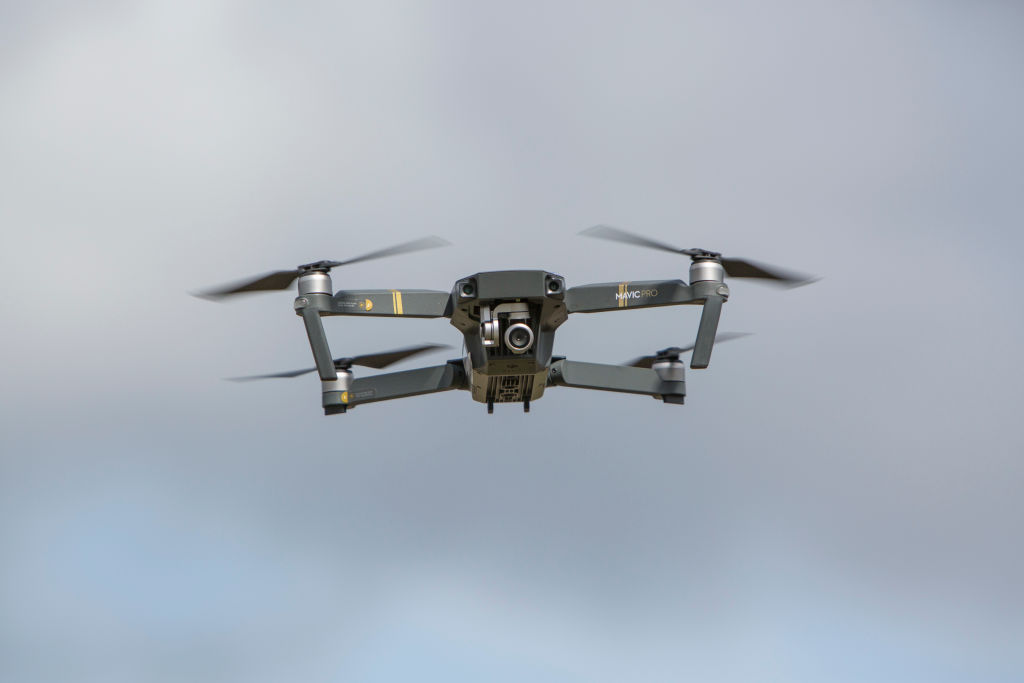A recent nighttime assault on a Nigerian military base in northeastern Borno State began with four drones carrying grenades.
Over the next few hours, Nigerian Soldiers posted near the border with Cameroon fended off an attack by the Islamic State West Africa Province (ISWAP) until they received air support from the Nigerian Air Force. Five Soldiers died in the attack.
Nigeria has spent years battling ISWAP terrorists in the northeastern states near Lake Chad. The deadly Wajikoro attack revealed that ISWAP has become the latest extremist group to weaponize commercially available drones. Weaponized drones boost ISWAP’s capacity to attack Soldiers and civilians while minimizing the risk to its own fighters.
“ISWAP has proven to be highly adaptive, learning and evolving in response to state military strategies,” Samuel Malik, who works with Good Governance Africa, told German broadcaster DW. “Their shift toward incorporating drone technology mirrors broader global trends in warfare, where both state and nonstate actors increasingly rely on unmanned systems for offensive and defensive operations.”
Before the Wajikoro attack, ISWAP, like many other terrorist groups across Africa, used drones primarily for conducting surveillance, gathering intelligence and creating propaganda. The shift toward using armed drones in attacks likely indicates that ISWAP is receiving help and advice from the larger Islamic State organization, according to Vincent Foucher, a research fellow at the French National Centre for Scientific Research.
Foucher has interviewed former ISWAP fighters who reported that Islamic State is sending advisors to help ISWAP.
“They can improve the tactics, and we have seen the use of drones and explosives and large-scale attacks,” he told Reuters. “This could be taken as impact of the advice from the Islamic State.”
For that reason, analysts such as Taiwo Adebayo at the South Africa-based Institute for Security Studies say Nigeria must boost its efforts to block extremists’ supplies and shut down their finances.
Adebayo told DW that ISWAP’s ability to turn inexpensive commercial drones into flying bombs increases its capacity to do harm while undermining faith in the military. The result could be increased recruitment for ISWAP, he said.
The ISWAP attack in Wajikoro was part of a resurgence of extremist violence since January against military and civilian targets in northeastern Nigeria. In recent months, both ISWAP and its rival, Boko Haram, have spent less time fighting among themselves and have turned their attention to terrorizing their communities. The surge in attacks has included both drones and roadside bombs. In recent weeks, nearly 50 people were killed in either direct attacks or roadside explosions in Adamawa and Borno States. In all, terrorist attacks killed 100 people in northeastern Nigeria in April.
Borno State Gov. Babagana Zulum has warned that extremists are gaining ground. He and other northeastern governors recently called on the federal government to reexamine its counterterrorism approach in the region. In the meantime, Malik told DW that the military must do more to disrupt ISWAP’s use of drones.
“There is an urgent need for the deployment of systems capable of detecting and neutralizing hostile drones,” said Malik. “Tools such as jamming devices, radar detection systems and spoofing technologies can play a vital role in protecting military assets and civilian infrastructure from drone attacks.”

